I think Snapdragon X Elite gaming performance is going to blow your mind, but there is still one big issue to overcome
A database of game performance on the newest Windows on ARM laptops is encouraging, but our old foe anti-cheat is here to rain on the parade.
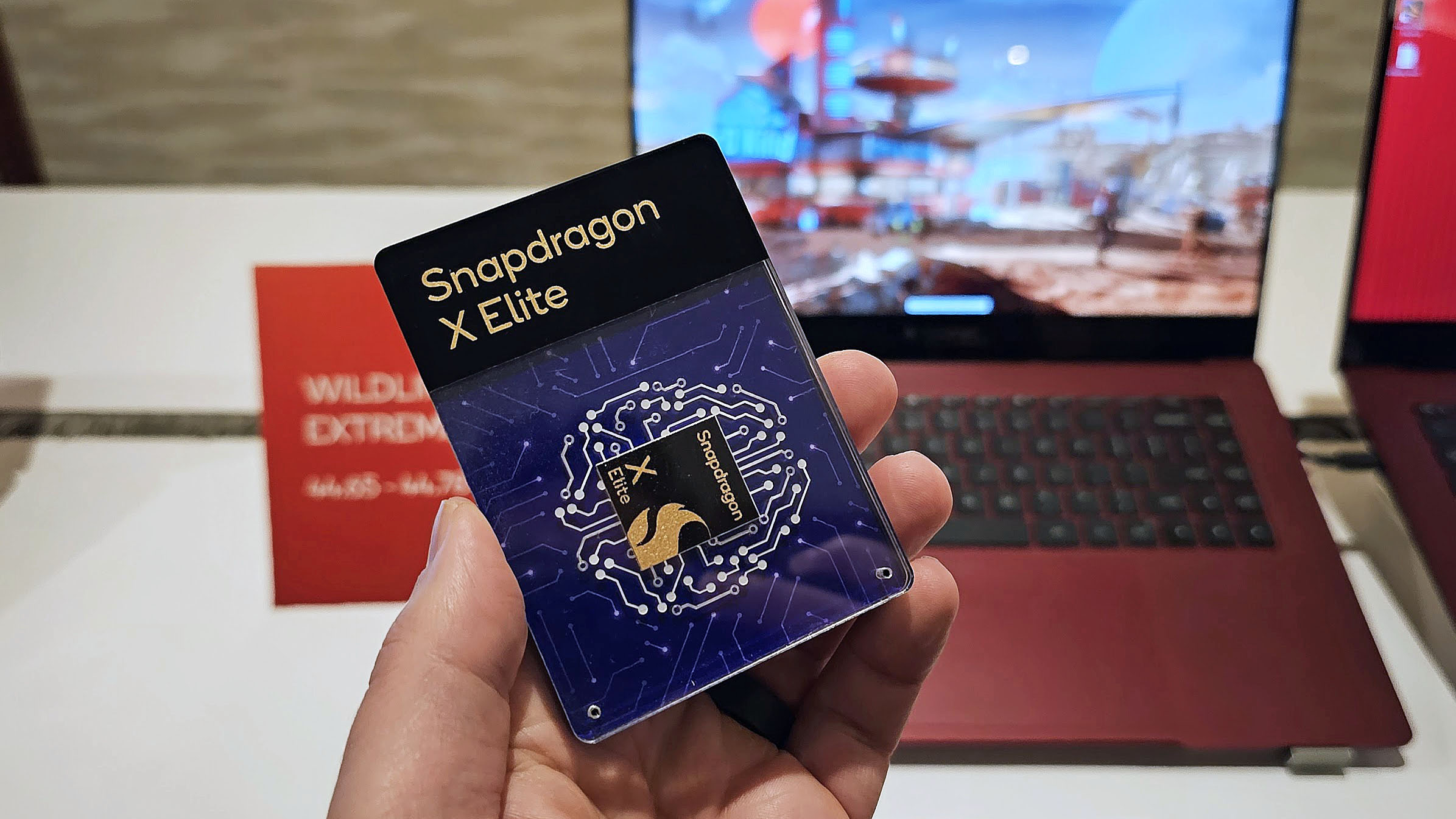
Ever since the Microsoft Build session that proudly showed off a Snapdragon X Elite laptop playing Borderlands 3 at an impressive level, I've been eagerly anticipating more. While not a new game, Borderlands 3 is, in my own experience, still a tough cookie at times on PC, so it felt like a fitting example of how good the new chips can be.
Thanks to a website that isn't produced, but is endorsed by Qualcomm as being legitimate, we already have a wealth of data about gaming performance on new Snapdragon X Elite laptops.
The site, worksonwoa.com, currently has over 1,300 entries with reports on performance, and what laptop spec they were running on. It's also open for contribution from the community through GitHub, so as actual consumers get their hands on these things, the database will surely continue to grow.
I've been sifting through the pages and to say I'm impressed would be an understatement. Remember, these are not traditional x86 CPUs, and in most cases these games likely haven't been compiled natively for ARM. Nevertheless, there's some really exciting stuff in here. But also an old foe that looks like being an issue in some cases: Anti-cheat.
Some demanding games with impressive performance figures

As a long term Linux and Steam Deck gamer, I'm well-used to encountering issues with running PC games on anything that isn't a regular Windows PC. The website being used here is reminiscent of ProtonDB, an essential for all those who dabble with Linux and Steam Deck. When in doubt, the community helps out.
The difference here of course is that it's Windows, the OS that all of these games were designed to run on. But it's not quite that simple, since there are fundamental differences between Windows on ARM and Windows that runs on Intel/AMD. There are options, such as natively compiling your game for ARM64, create a 'hybrid' with ARM64EC or just don't bother and let emulation do the work.
So what sort of games are we talking about? I've embedded a gallery below showing the results from worksonwoa.com of some of the most interesting ones I've found so far.
Get the Windows Central Newsletter
All the latest news, reviews, and guides for Windows and Xbox diehards.
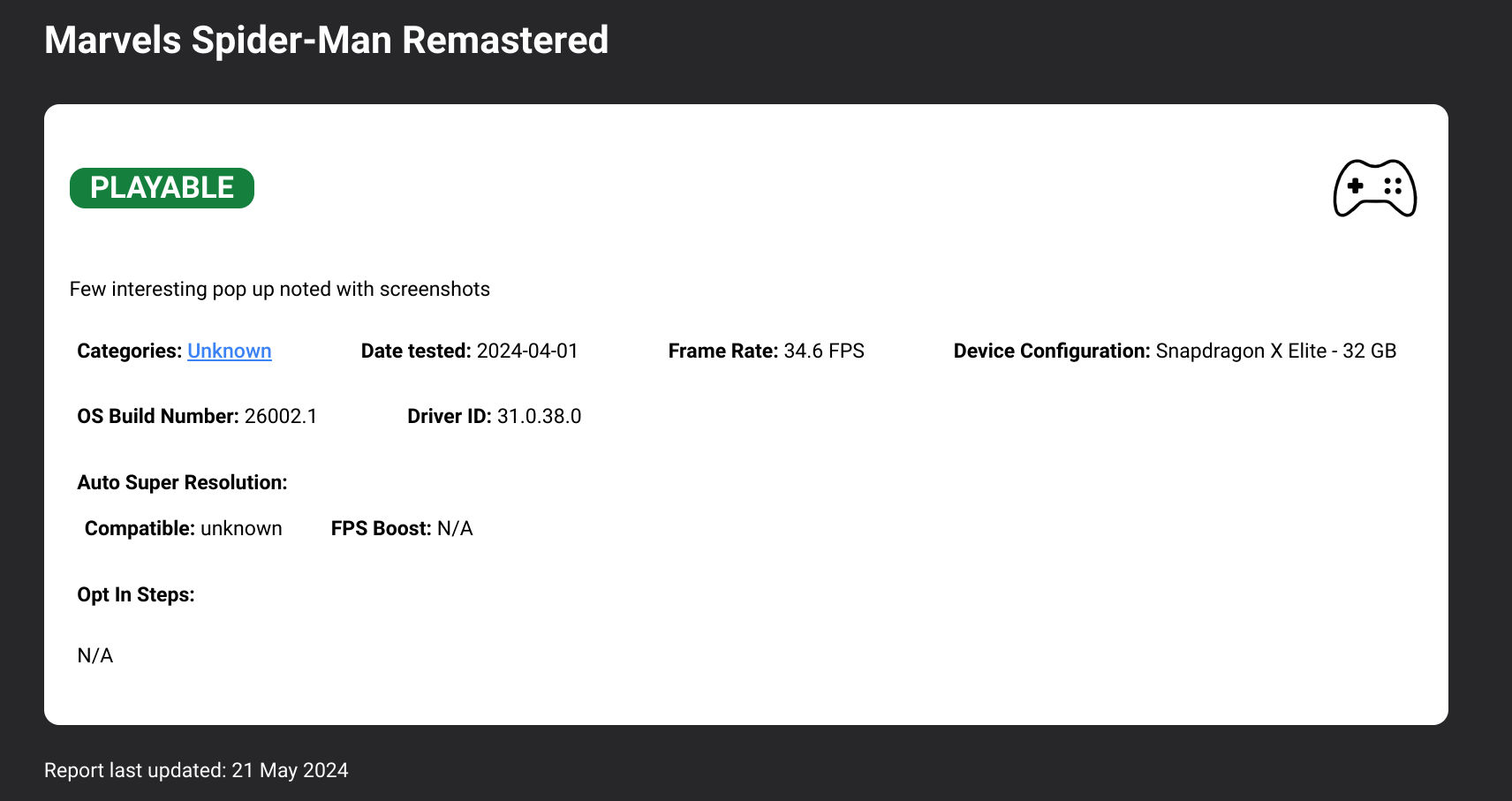
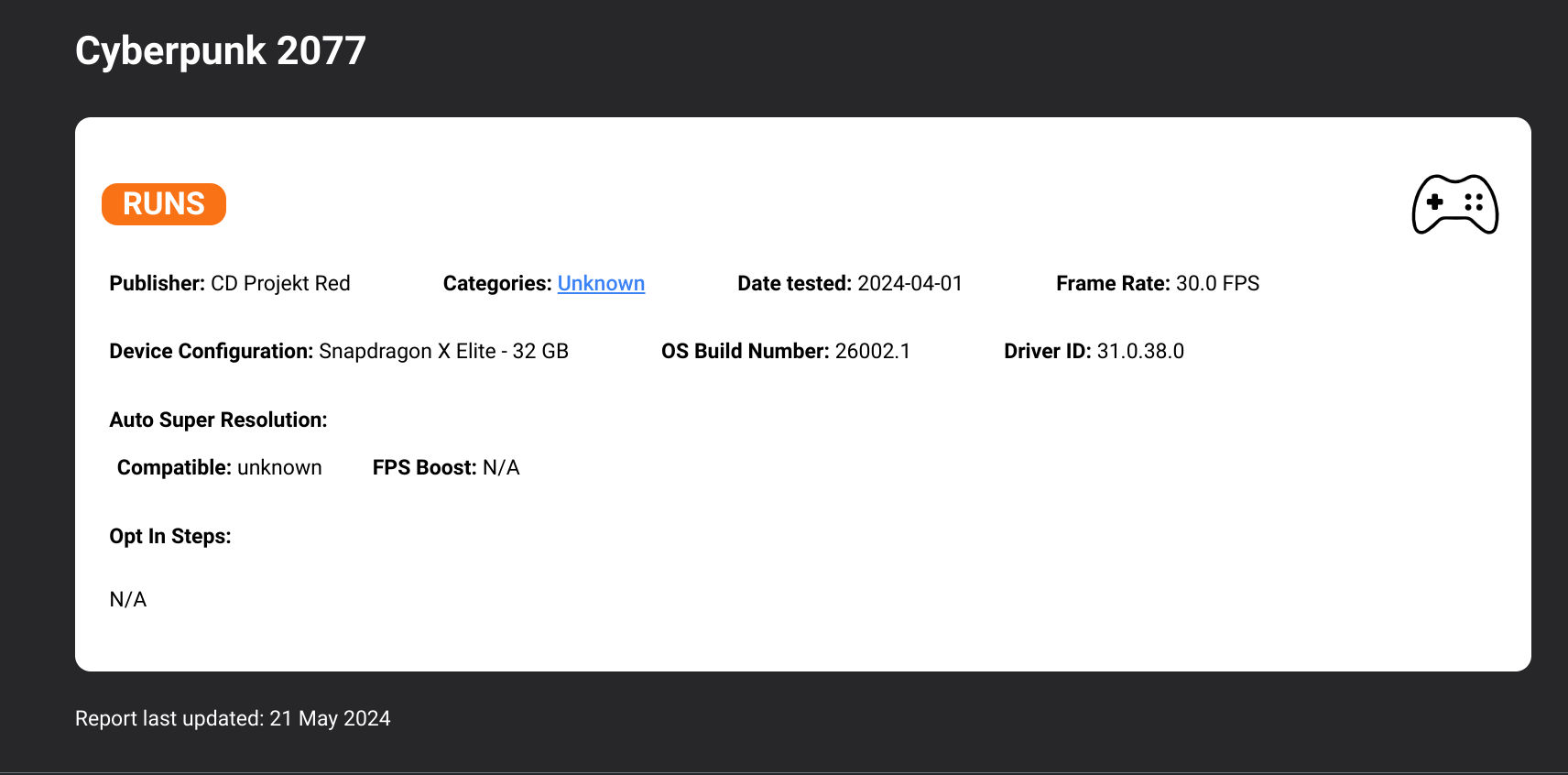
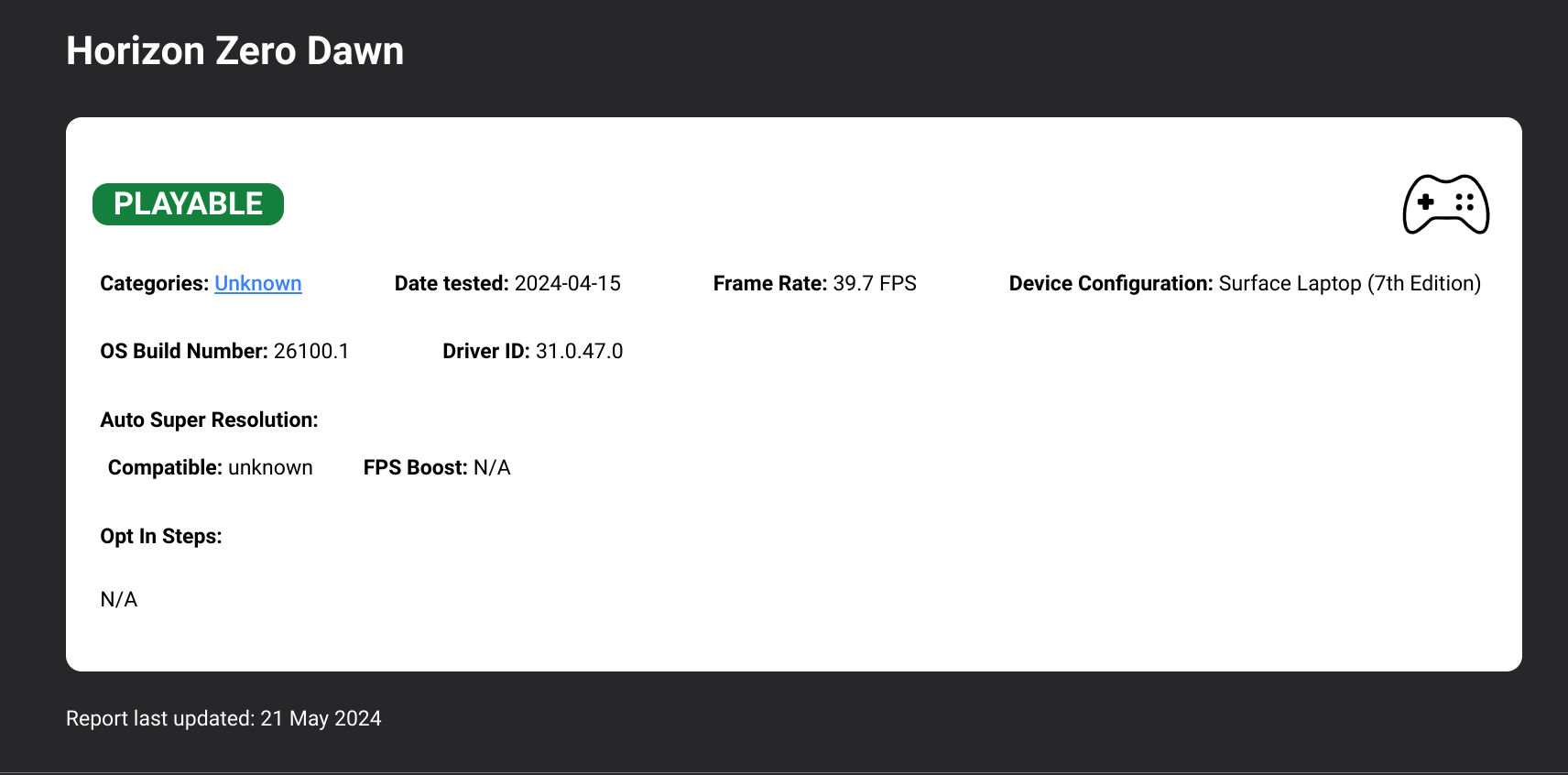
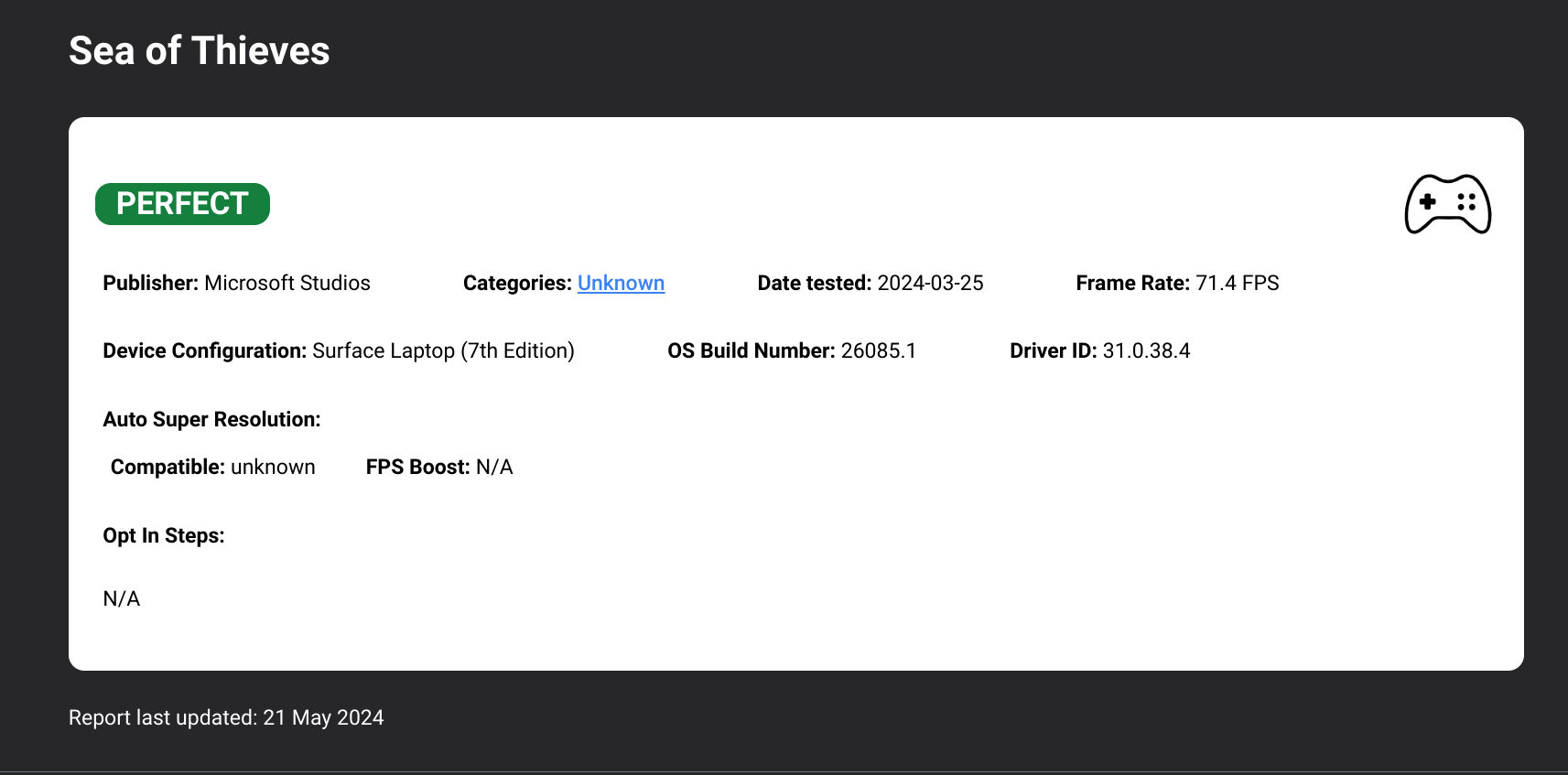
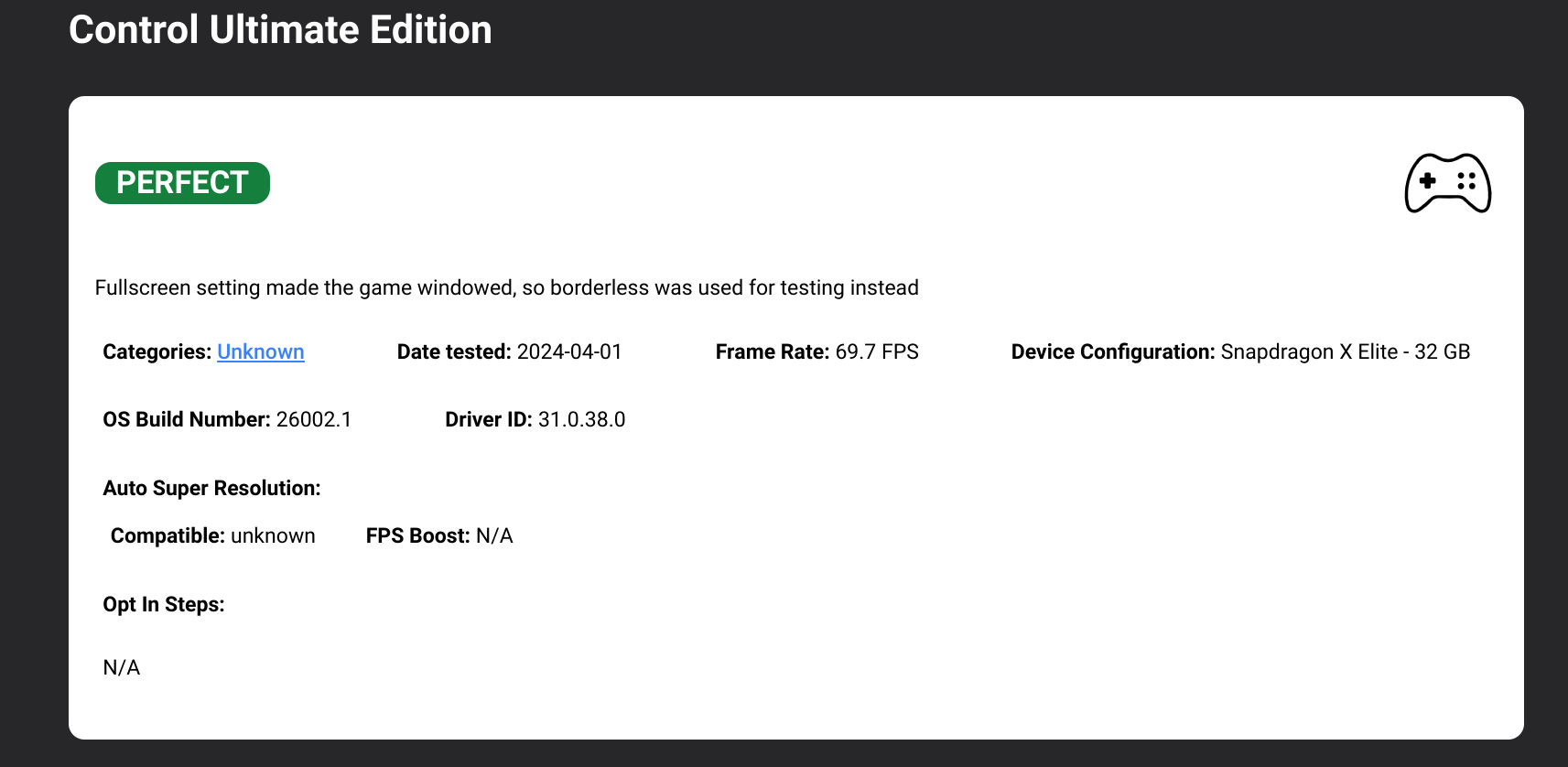
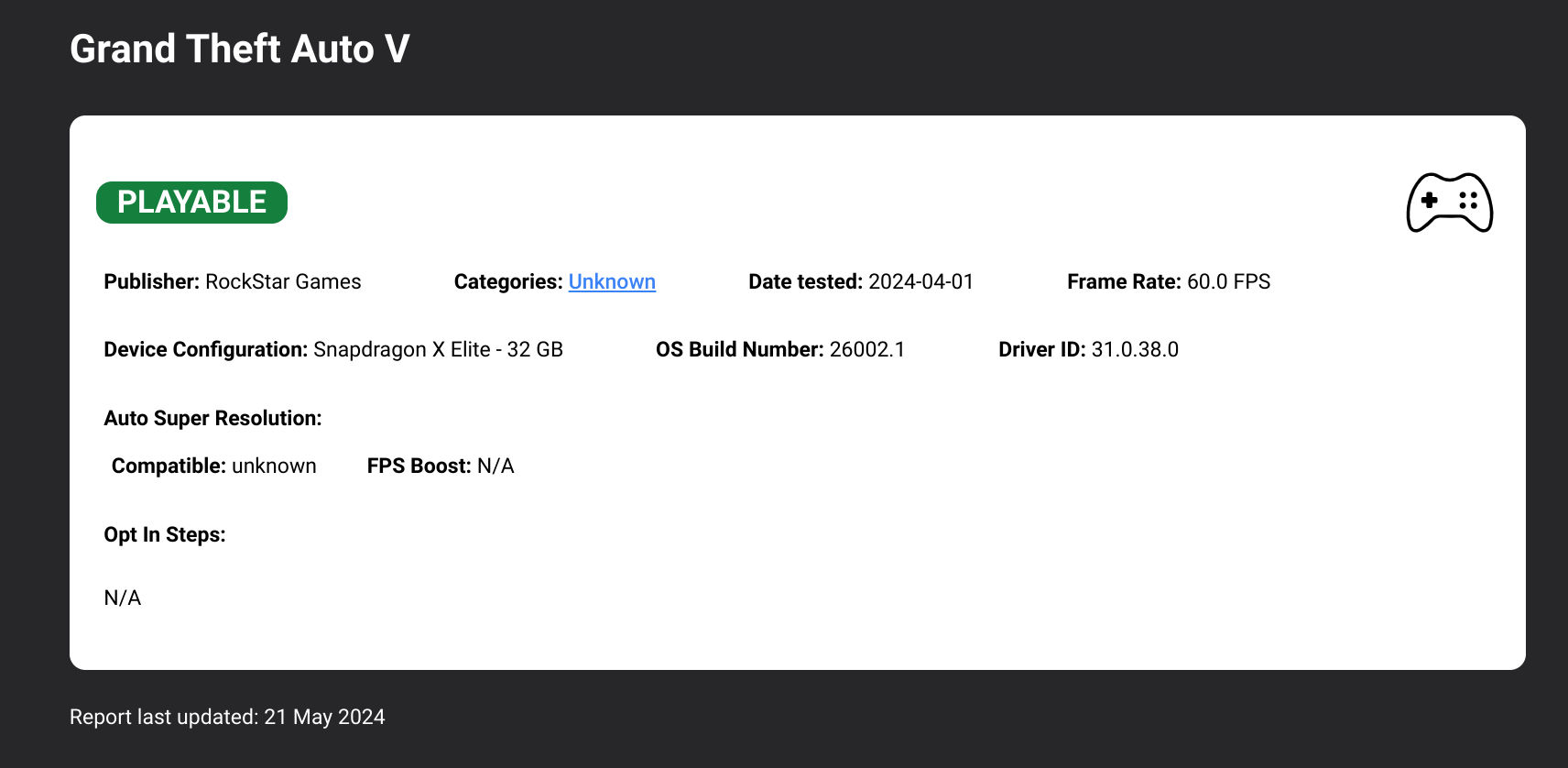
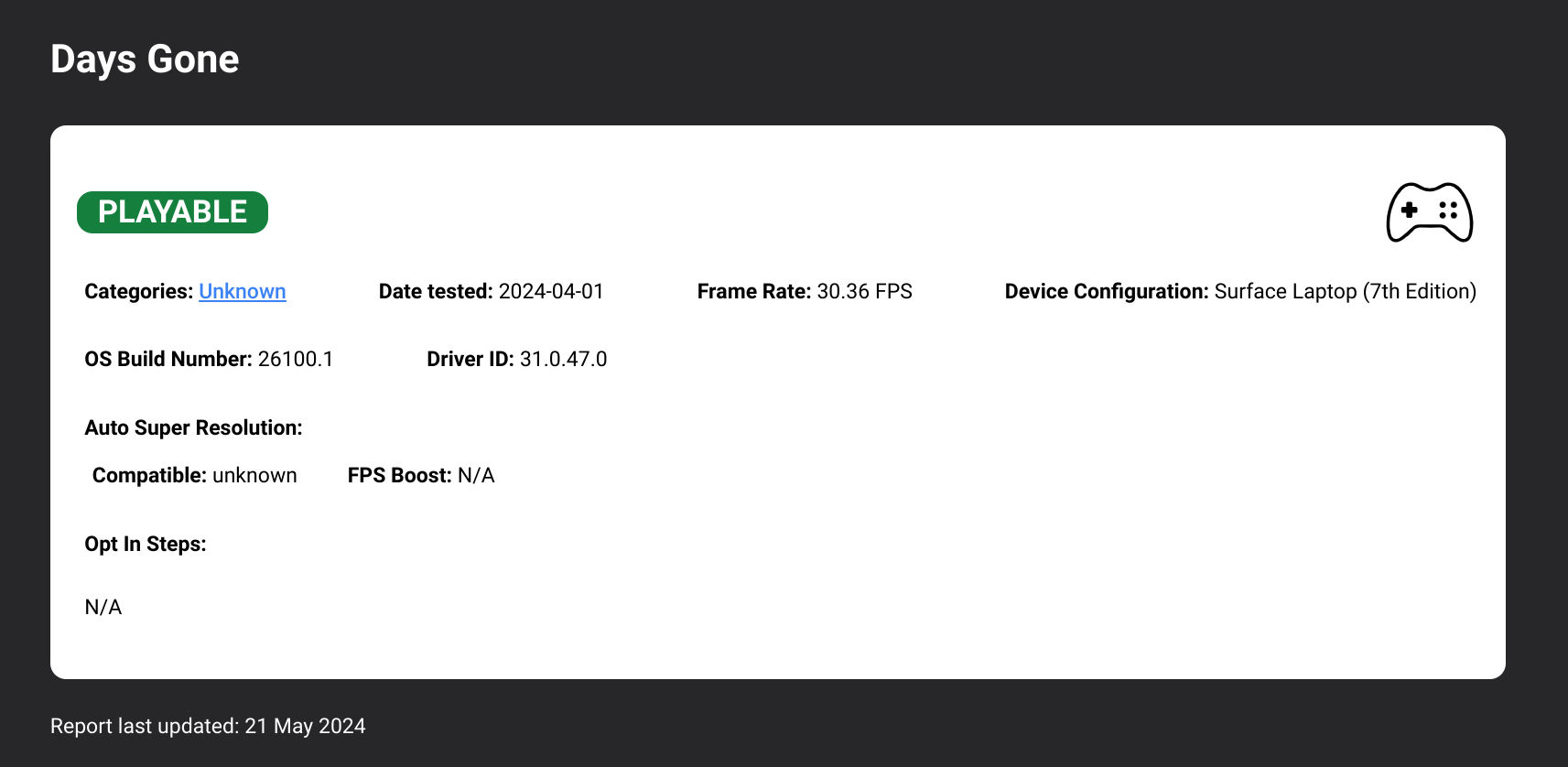
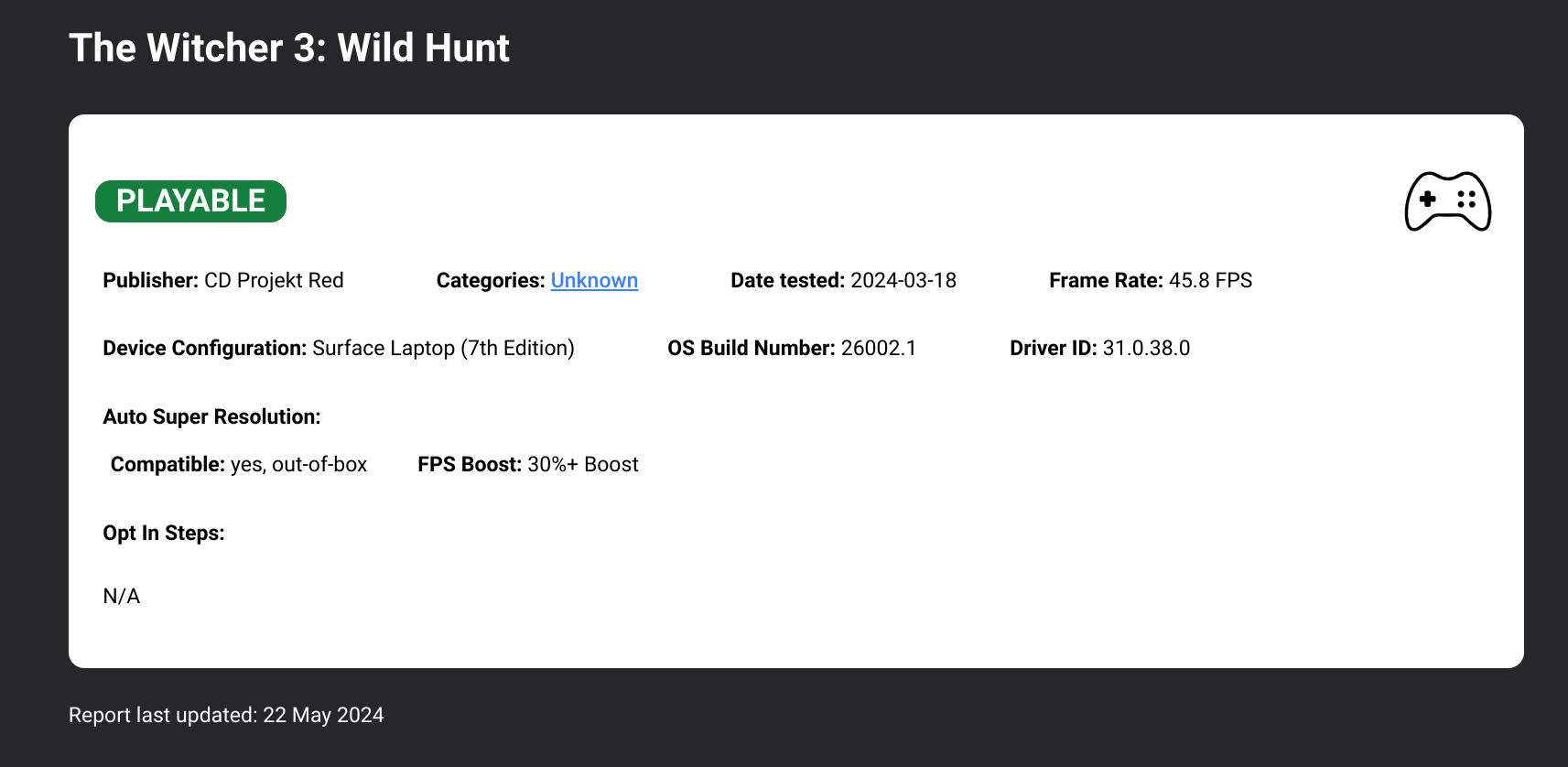
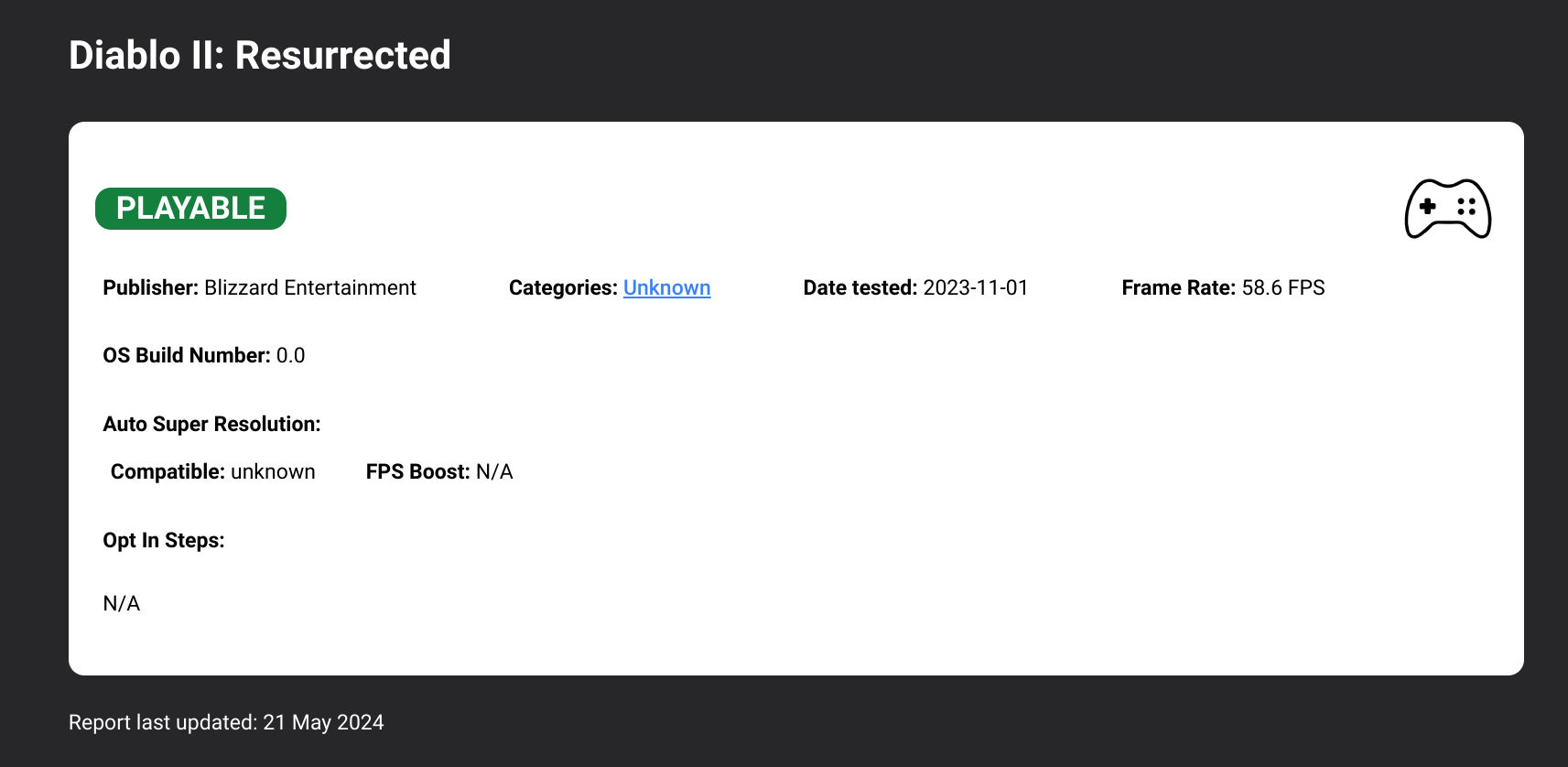
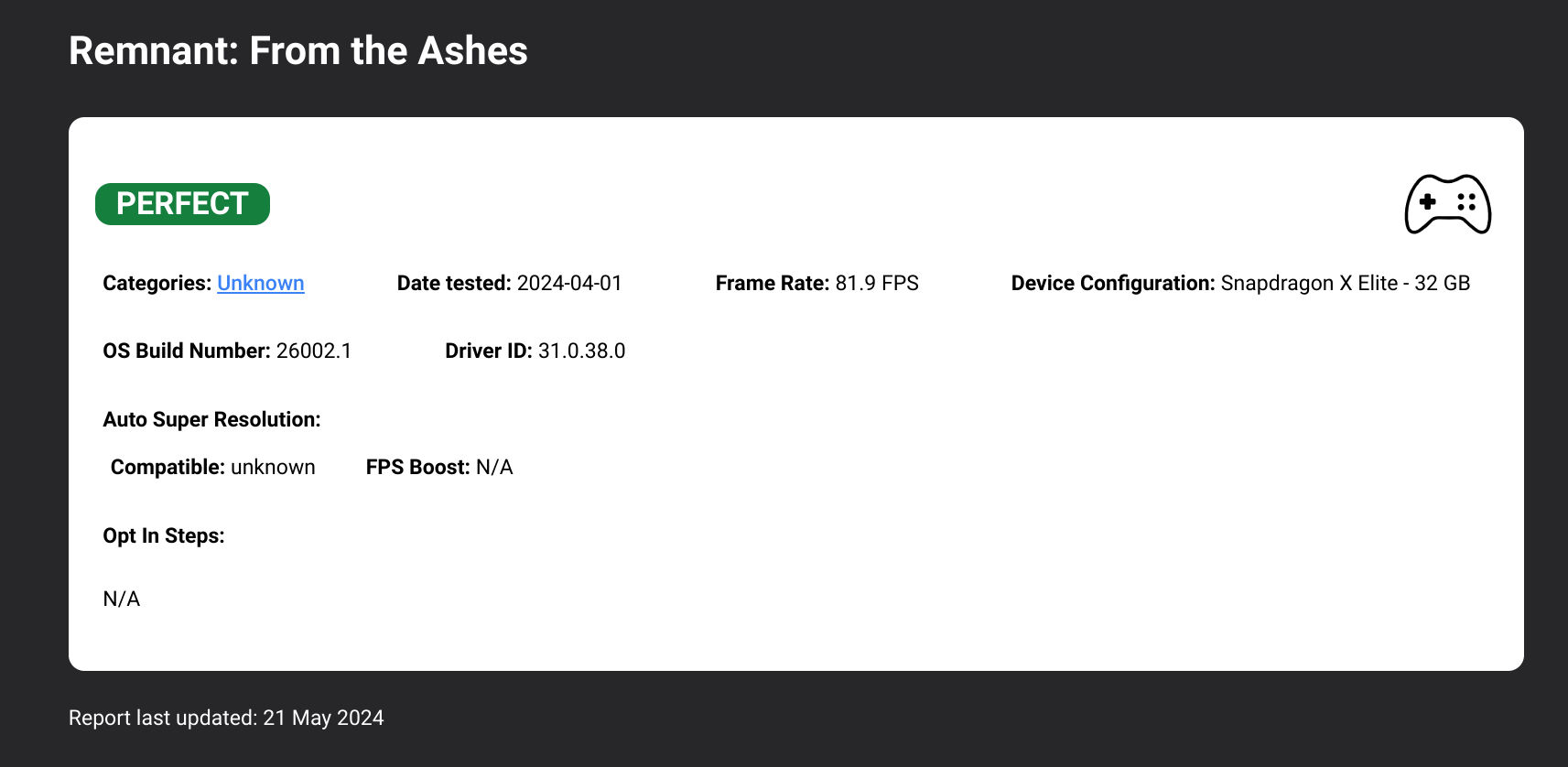
This is just a selection of 10 from my own library, the easiest place to start looking. But I'm blown away by some of these figures. Some of these titles can be pretty demanding, and being able to hit just over 30 FPS on Spider-Man Remastered is no joke. I played the game originally at 30 FPS on the PS4 back in the day, and now you'll be able to play a better looking version on a Dell XPS 13.
There are some smash hits here as well. Reported frame rates in excess of 60 FPS in Control Ultimate Edition and Sea of Thieves, The Witcher 3 at 45 FPS, even Cyberpunk 2077 looks playable.
Gaming handhelds like the Steam Deck and the ROG Ally have shown us what's possible without the need for an ultra-powerful gaming laptop, but this is as impressive in a different way. None of the laptops announced so far are at all gaming-focused, and yet, it looks like they're going to be able to do it anyway. And with an ARM chip inside, no less.
This is only the first generation, too, let's not forget. Lots to get excited over, but unfortunately, there's still one giant fly in the ointment.
Just like on Steam Deck, anti-cheat ruins the party
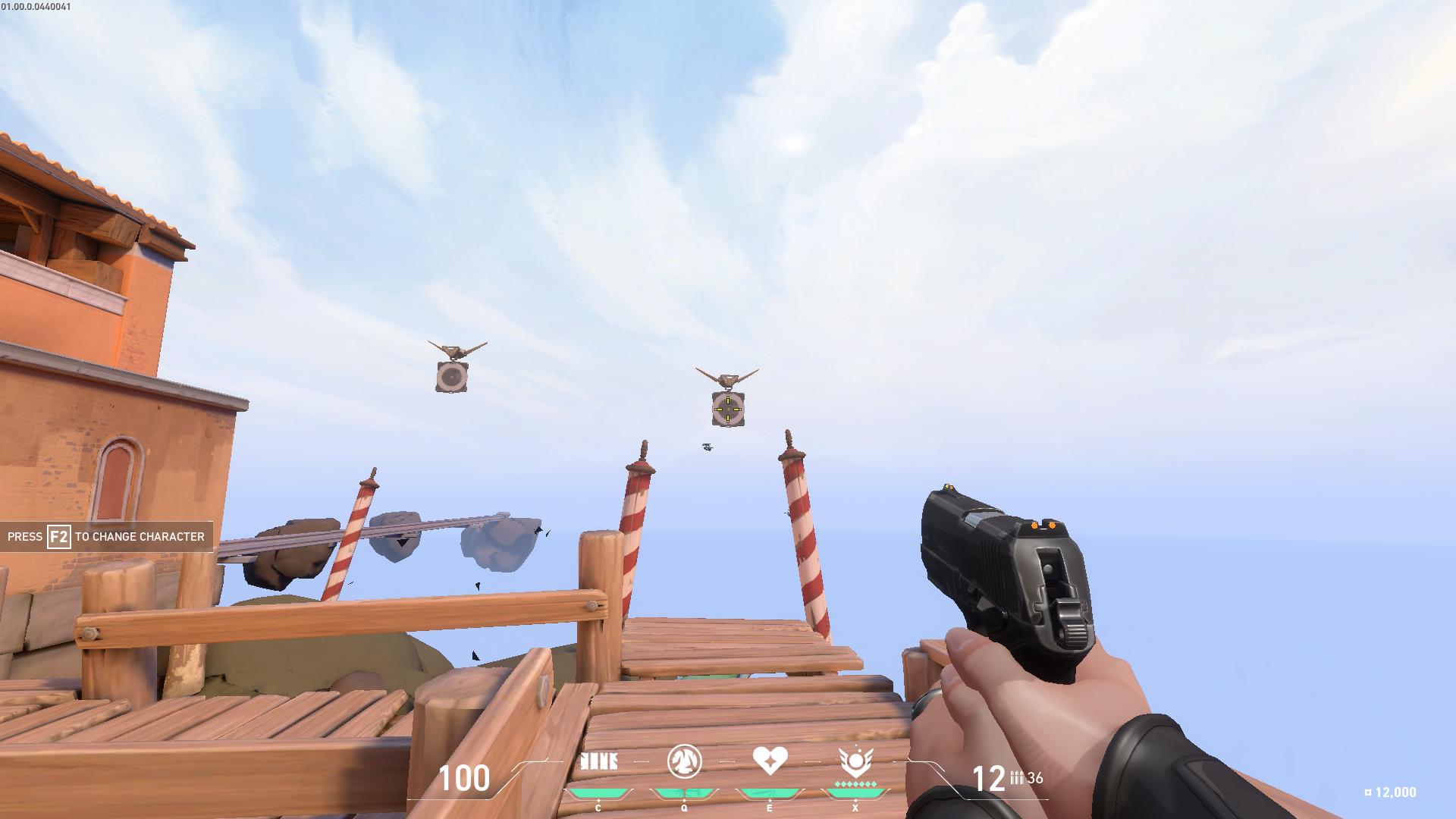
Anti-cheat. That thing that doesn't seem to stop people cheating and can certainly be a nuisance, too. Linux/Steam Deck gamers have long suffered at the hands of the various software solutions out there targeting filthy cheaters, but it looks like it also extends to Windows on ARM.
Checking out reports for popular titles like Valorant, League of Legends, PUBG, and Fortnite, all are labelled as unplayable. And that'll be down to the anti-cheat. Some competitive games, like Valve's Dota 2 and Counter Strike 2 seem to work fine, so it isn't universal, but it's clearly going to be a widespread issue. So you can expect it to apply to titles like Destiny 2 and Rainbow Six Siege, as well.
I'm not smart enough to know what kind of work is involved in fixing this, but even if the software is updated, there's then the matter of developers actually using it. Many of the anti-cheat tools support Linux, for example, but unless the developers opt into it, then Steam Deck owners are out of luck. Since Windows on ARM is just Windows, hopefully it wouldn't be like this, but you never know.
It's still an exciting time for Windows laptops, though, and June 18 can't come around soon enough so we can see what real people are doing with them.

Richard Devine is a Managing Editor at Windows Central with over a decade of experience. A former Project Manager and long-term tech addict, he joined Mobile Nations in 2011 and has been found on Android Central and iMore as well as Windows Central. Currently, you'll find him steering the site's coverage of all manner of PC hardware and reviews. Find him on Mastodon at mstdn.social/@richdevine
-
TechFreak1 There are upscalers in the works that are not GPU specific so in time using ARM socs will be able to match gaming performance of x86-x64 custom console socs graphics using upscalers. But the only niggle would be the finer UX elements which may appear blurry at very close inspection.Reply
